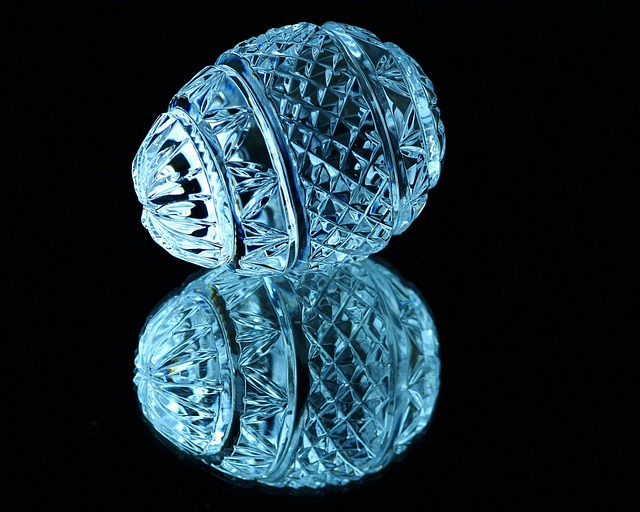Choosing between fresh and frozen donor eggs is a crucial step for gay couples pursuing parenthood through egg donation, offering distinct benefits and considerations. Fresh eggs provide higher fertilization and pregnancy rates but require prompt insemination (within 5-7 days) and specialized handling at a higher cost. Frozen eggs offer extended storage options, easing financial and emotional stress while allowing more time for donor selection, with advancements in freezing techniques like vitrification improving survival rates of thawed eggs. Both options present unique advantages that couples should carefully consider to navigate the egg donation process successfully.
For many same-sex couples, understanding egg donation is a crucial step in their family-building journey. This comprehensive guide explores the options of fresh and frozen donor eggs, offering insights into the pros and cons of each choice. We delve into the benefits of frozen eggs, weighing them against the advantages of using fresh ones. By considering various factors, from medical to financial aspects, this article equips gay couples with knowledge to make an informed decision tailored to their unique circumstances.
Understanding Egg Donation for Gay Couples: A Brief Overview
Choosing between fresh and frozen donor eggs is a significant decision for any prospective parents, especially gay couples navigating their reproductive options. Understanding egg donation in this context involves recognizing both the process and the diverse range of choices available. Egg donation for gay couples has become an increasingly common and accepted pathway to family building. It offers a solution for same-sex female pairs who may face challenges conceiving through other means.
In this scenario, a donor provides her eggs, which are then fertilized with one of the partners’ sperm or a chosen sperm donor. The resulting embryos can be transferred to the receiving partner’s uterus, fostering a pregnancy and eventually leading to the birth of a child. Both fresh and frozen eggs have their advantages and considerations, each presenting unique benefits and potential outcomes for gay couples embracing this life-changing journey.
The Pros and Cons of Fresh Donor Eggs
Fresh donor eggs offer several advantages in the context of egg donation for gay couples. Firstly, they ensure a higher chance of successful fertilisation and pregnancy due to their younger age and better quality. Fresh eggs have also been shown to result in improved implantation rates, making them an attractive option for prospective parents. Moreover, using fresh eggs allows for more control over the selection process, as couples can access detailed information about the donor’s medical history and lifestyle, fostering a sense of trust and comfort.
However, there are some drawbacks to consider. Fresh eggs come with a shorter shelf life, typically requiring insemination within 5-7 days of retrieval. This time constraint increases the urgency for scheduling procedures, which might be challenging for couples with busy lives or unexpected delays. Additionally, the cost of fresh donor eggs is generally higher due to the advanced medical care and rapid processing required to maintain their viability. These factors underscore the importance of careful consideration in choosing this option.
Exploring the Benefits of Frozen Donor Eggs
For many same-sex couples considering egg donation as part of their family-building journey, understanding the advantages of frozen donor eggs is an essential step. One of the key benefits lies in the preservation and accessibility it offers. Frozen eggs can be stored for extended periods, providing a sense of security and flexibility to prospective parents. This option allows couples to take their time, ensuring they find the right match without the urgency associated with fresh donations.
Additionally, frozen donor eggs often present improved success rates in IVF treatments due to advancements in freezing techniques. These methods, such as vitrification, preserve the structural integrity and viability of the eggs, leading to higher survival rates upon thawing. As a result, gay couples can increase their chances of successful conception and reduce potential concerns related to egg quality.
Making an Informed Decision: Factors to Consider
When deciding between fresh and frozen donor eggs, it’s crucial to understand the unique advantages and considerations of each option, especially for gay couples exploring egg donation. Fresh donor eggs are immediately available after retrieval, offering a faster path to fertility treatments. They also generally have a higher success rate due to their youth and vitality. However, they come with stringent requirements, such as finding a suitable donor quickly and managing the logistics of egg pickup or delivery within a short timeframe.
On the other hand, frozen donor eggs provide more flexibility. They can be stored for extended periods, allowing couples time to prepare financially and emotionally. This option reduces the pressure of urgent timelines and may increase the chances of success over multiple attempts due to the preservation process. Yet, it’s essential to consider potential changes in egg quality over time with freezing, as well as the additional costs and procedures associated with thawing and transferring frozen eggs.
When considering egg donation for gay couples, both fresh and frozen donor eggs offer unique advantages. Fresh donor eggs provide immediate availability and potentially higher fertility rates, while frozen eggs ensure a longer shelf life, allowing for more flexibility in timing and reducing the risk of potential biological risks associated with freshness. Ultimately, the choice between the two depends on individual preferences, financial considerations, and medical advice. By thoroughly exploring the pros and cons of each option, gay couples can make an informed decision that aligns with their specific circumstances and aspirations for building a family.
